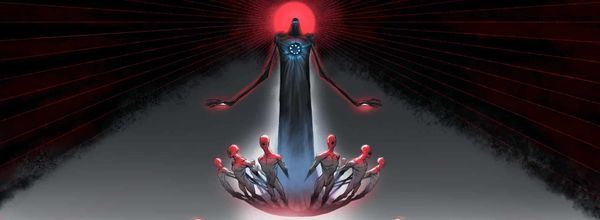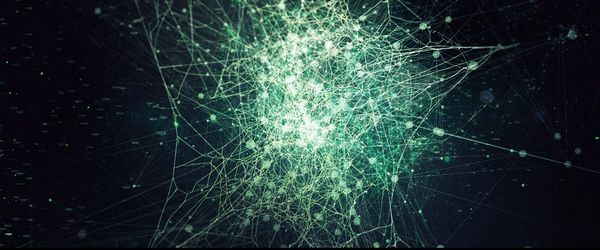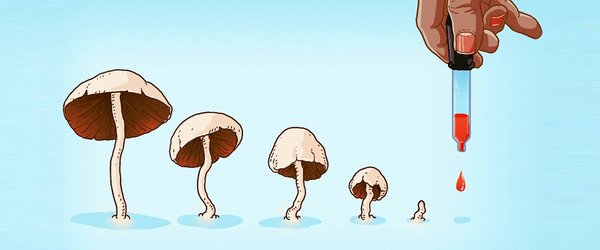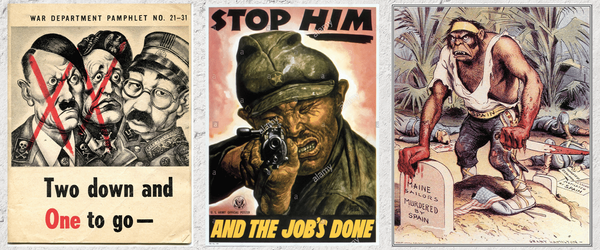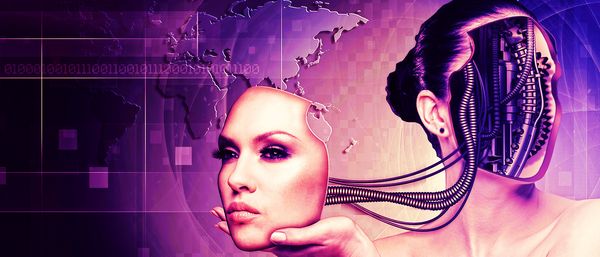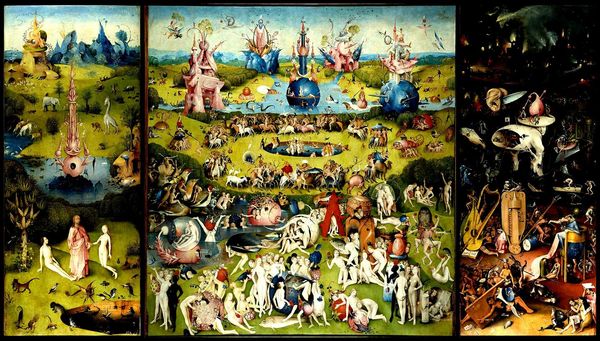The Third Wave • • 5 min read
Rise and Shine! Take Your Pills!
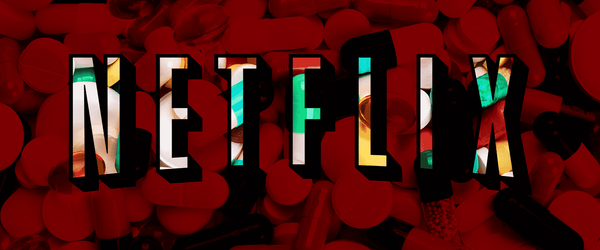
Rise and shine! It’s time to take your pills.
Grab that Adderall to calm your diagnosed ADD, or to help you push through that massive project. Maybe reach for the Xanax to rid your anxiety for the day. Or how about that Zoloft to vanish into a state of utopia and push away your depression? One thing’s for sure: the positive effects you feel will begin to fade, and it won’t be long before you reach for that pill bottle again, only to one day find that you’re now taking just a tad more than prescribed, and your symptoms have slowly become worse than when you started on the medication.
You’ve slowly begun to realize how dependent your organs have become on these tiny “magic” pills.
We have either been through this ourselves, seen someone go through this, or know someone who knows someone. Recently, many of us may have become more aware of our stimulant driven culture through the popular Netflix documentary Take Your Pills, which gives a glimpse into our culture’s dependency on medicines like adderall, which can be extremely unhealthy for mind, body, and spirit.
Our over-reliance on these drugs is seen in almost every corner of society; from work environments in Silicon Valley, to office buildings in the midwest. Pharmaceuticals are used to push through dreary days; as a way to have an edge on peers and get work/homework done faster; or, perhaps in lower numbers, by people who need them to treat conditions such as acute anxiety.
Medications are not for everyone, but many of us use them to function effectively or to induce certain states of mind; such as happiness, euphoria, calmness, or creative flows. We are continuously finding that current pharmaceutical medicines come with a multitude of side effects which, unfortunately bring down the mind, body, and spirit. So whatever your reason for using these “magic” pills, it’s never too late to start reading about other options that have (potentially) better upsides, and certainly fewer downsides. Educating ourselves on the forms of medicine we consume will always be to our advantage.
The alternative we’re most excited about – something that could free us from reliance on prescription pharmaceuticals – is psychedelic medicine.
Psychedelics, in various forms, have been used for thousands of years by a number of cultures – including the Aztecs, Mayans, Greeks, Romans, and more, with overwhelming experiential evidence that taking these substances tends to be one of the most profound and transformative experiences of one’s life. When used with adequate care and guidance, psychedelics can be safer for the biology of the body and the health of the brain than typically prescribed medications and could potentially free us from all substance dependency. The interactions that have been studied between the body and psychedelics have shown these substances to be non-addictive.
What a marvelous gift nature seems to be offering us.
As the attention of modern medical science has begun to shift toward these ancient psychoactive substances, we’ve seen a flurry of studies reporting their efficacy at treating severe depression, anxiety, PTSD, and addiction. Not only can they be more effective than typical pharmaceutical treatments, just a single dose of a psychedelic can be enough to significantly reduce depressive symptoms for months.
With psychedelics, there’s no need to take a pill every morning and suffer the come-downs, side-effects, and tolerance of mainstream pharmaceuticals. It could just take one mystical experience to transform your relationship with your own mental health, permanently.
As leading Ethnobotanist Dennis McKenna mentions in The Third Wave podcast, anxiety, depression, and stress are depressions of the spirit. Modern objectivist medicine has, in many ways, abandoned the holistic and spiritual aspects of healing. This is why psychedelics could provide a much needed paradigm shift in modern medicine.
Even so, the thought of a full-blown psychedelic trip may be justifiably intimidating to many who are innocent to the world of psychoactive substances. Thankfully, there’s a middle-ground that is gaining popularity and scientific interest.
Microdosing, the act of taking very small quantities of psychedelics on a semi-regular basis, is an option for people who want to make use of the healing benefits of psychedelics, without jumping in at the deep end.
Leading psychedelic researcher James Fadiman states in the Netflix documentary Take Your Pills:
“A microdose is about a tenth or a twentieth of a conventional dose of a psychedelic substance, and that includes the classic psychedelics: LSD, psilocybin mushrooms, mescaline, peyote. You can expect zero psychedelic effects. The rocks don’t glitter even a little. The flowers have no great interest in you personally. In fact, if you have anything like that, that’s too high a dose.”
Large studies have shown that microdosing can be an effective replacement for anti-anxiety and antidepressant medications. The internet is flooded with individual reports of microdosing treating conditions such as depression and ADHD. Although its long-term effects on health are unknown, it’s highly unlikely that it can cause any harm comparable to those of modern prescription drugs.
Resources like those offered by The Third Wave aim to guide people toward sensible, structured microdosing routines that can improve lives. The goal, says founder Paul Austin, is not to get people hooked on a microdosing regimen that resembles a typical prescription – but instead, the goal is to use the mind-opening power of psychedelics to help people get control of their own health (and ultimately, break free of any substance dependence).
Check out The Third Wave’s Microdosing Course here.
All the recent attention around microdosing has prompted the first ever clinical study of its effectiveness: The Beckley Foundation is currently undertaking a double-blind controlled trial to uncover the psychological benefits of microdosing. It will undoubtedly be the first of many, and marks the beginning of mainstream scientific acknowledgement of microdosing’s potential.
Fadiman believes that microdosing could change the pharmaceutical landscape:
“Are there better, safer, simpler, less physiologically disruptive substances that have better side effects? A substance never has any side effects, they’re all effects. It’s just which ones you want – if you’re selling you go for one set of effects, if you’re looking at helping people who are being tortured by their pharmaceutical, you look at other effects. The clue came to me some years ago where I learned that Albert Hofmann, who was the man that first synthesized LSD, said that this very low dose area was incredibly under researched, and he said had Sandoz his company been more active there would have not been a market for ritalin.”
Unfortunately, the main risk with microdosing remains its unstable legal status. Although some psychedelic substances are legal in some countries, the unjustified legal status of many psychedelics is holding people back from discovering new forms of healing.
The Netflix Take Your Pills documentary starts to scratch the surface on where we are today and where we could be one day with medications that are currently legal and illegal. The synopsis for Take Your Pills states the following:
“Every era gets the drug it deserves. In America today, where competition is ceaseless from school to the workforce and everyone wants a performance edge, Adderall and other prescription stimulants are the defining drugs of this generation.”
Is that the legacy we want to leave? Do we want to be known as the stimulant generation?
Luckily we still have the chance to learn, grow, and move forward in ways that will benefit not only ourselves, but future generations. As Benjamin Franklin once said, “We are all born ignorant, but one must work hard to remain stupid.”

